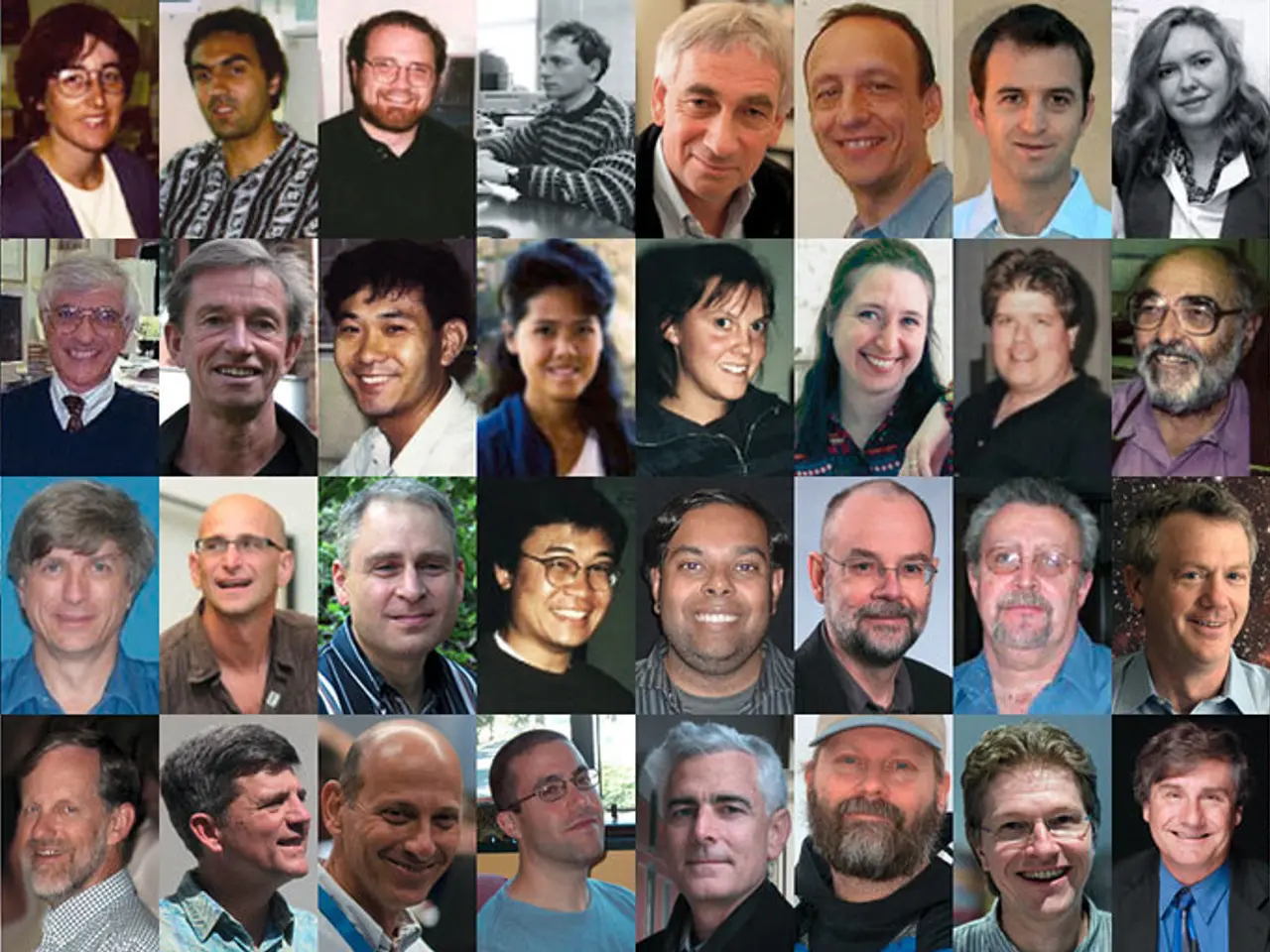Impact of Frameshift Genetic Alterations
In the complex world of genetics, somatic mutations and genetic instability have emerged as crucial factors in the development of cancer. These changes in the DNA code within our cells can transform them into cancerous rebels, promoting uncontrolled growth and division.
Genetic instability primarily arises from four main sources: defects in DNA repair pathways, errors in DNA replication, problems with chromosome segregation, and telomere dysfunction.
Defects in DNA repair pathways, such as base excision repair, mismatch repair, and double-strand break repair, are key contributors to genomic instability. For instance, loss of function in mismatch repair genes like MLH1, MSH2, MSH6, and PMS2 leads to microsatellite instability (MSI), a condition linked to colorectal and other cancers, particularly evident in Lynch syndrome patients.
Mutations in HRR genes like BRCA1 and BRCA2 impair the accurate repair of double-strand DNA breaks, resulting in error-prone repair and accumulation of mutations that increase cancer risk.
DNA replication errors and failures in chromosome segregation during cell division can generate structural chromosomal abnormalities and mutation accumulation, further destabilizing the genome.
Telomere dysfunction leads to chromosomal end fusions and genomic instability, which is also implicated in carcinogenesis.
These forms of genetic instability accelerate the accumulation of somatic mutations, creating a heterogeneous population of cancer cells with growth advantages, resistance to apoptosis, and increased invasive potential. For instance, MSI tumors tend to have a high mutation load, making them highly immunogenic and influencing their clinical behavior and response to therapies.
Environmental factors such as radiation and chemical agents can induce DNA damage, which if unrepaired or misrepaired, further contribute to somatic mutations and cancer development.
Identifying somatic mutations can guide the development of targeted therapies. Next-generation sequencing (NGS) can be used to identify specific somatic mutations causing cancer. Certain somatic mutations are associated with a higher risk of cancer recurrence or metastasis.
Prevention is always better than cure in managing somatic mutations. Lifestyle modifications like exercise, a healthy diet, and avoiding harmful substances can help prevent somatic mutations. Researchers are also developing advances in DNA repair and stability maintenance to prevent mutations.
In conclusion, understanding the intricate relationship between somatic mutations, genetic instability, and cancer is crucial in the development of effective preventive measures and targeted therapies. By harnessing the power of next-generation sequencing and continuous research, we can strive to minimise the impact of somatic mutations on our health and wellbeing.
[1] Cancer Research UK. (2021). Genetic changes in cancer. [online] Available at: https://www.cancerresearchuk.org/about-cancer/causes-of-cancer/genetic-changes-in-cancer
[2] National Cancer Institute. (2021). What are somatic mutations? [online] Available at: https://www.cancer.gov/publications/dictionaries/cancer-terms/def/somatic-mutation
[3] National Cancer Institute. (2021). DNA repair pathways and cancer. [online] Available at: https://www.cancer.gov/about-cancer/causes-prevention/genetics/dna-repair-pathways-fact-sheet
[4] Cancer Research UK. (2021). Microsatellite instability. [online] Available at: https://www.cancerresearchuk.org/about-cancer/causes-of-cancer/genetic-changes-in-cancer/microsatellite-instability
[5] National Cancer Institute. (2021). Environmental factors and cancer. [online] Available at: https://www.cancer.gov/about-cancer/causes-prevention/risk/environment/radiation-fact-sheet
- Medical-conditions such as microsatellite instability (MSI), particularly evident in Lynch syndrome patients, are linked to cancer development due to defects in DNA repair pathways, like mismatch repair genes.
- Science and health-and-wellness are intertwined in the development of targeted therapies, like those that utilize next-generation sequencing (NGS) to identify specific somatic mutations causing cancer, reducing the risk of cancer recurrence or metastasis.




